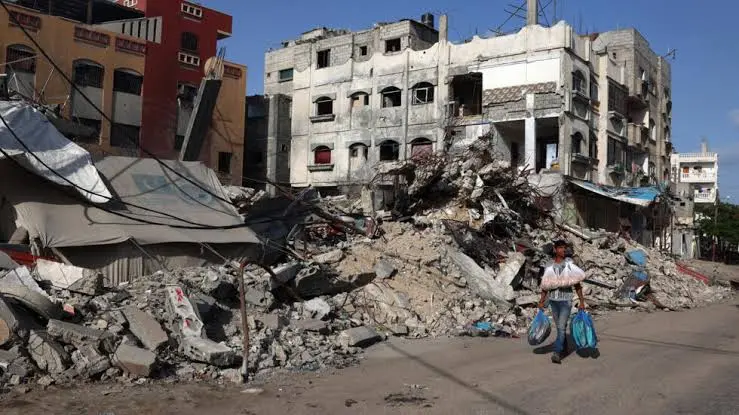WHO Warns of Looming Health Crisis as Rafah Hospital Faces Closure Amid Israeli Incursion

WHO Warns of Humanitarian Crisis as Last Hospital in Rafah Faces Closure Amid Israeli Incursion
Desk Report, May 28, 2024: The last operational hospital in Rafah may soon cease functioning if Israel proceeds with a full-scale incursion into the southern Gaza city, warned Richard Peeperkorn, the World Health Organization (WHO) representative for Gaza and the West Bank. Speaking on the sidelines of the World Health Assembly in Geneva, Peeperkorn highlighted the dire implications of the ongoing Israeli offensive for medical facilities and the civilian population in Rafah.
“If the incursion continues, we risk losing the last hospital in Rafah,” Peeperkorn stated. He elaborated that the current contingency plan, which involves using inadequately equipped field hospitals, would be insufficient to prevent a significant increase in mortality and morbidity rates.
The Rafah offensive, now in its third week, has drawn widespread condemnation following an airstrike on Sunday that ignited a fire in a tent camp, resulting in the deaths of at least 45 people. Israeli officials claimed the airstrike targeted a compound housing two senior Hamas operatives and did not intend to cause civilian casualties.
On Tuesday, Israeli tank shelling reportedly killed 21 Palestinians and wounded dozens more in an area with tents sheltering displaced individuals west of Rafah, according to Palestinian medical sources. Peeperkorn emphasized the critical condition of the remaining hospital facilities in Rafah, noting that of the three hospitals, only one remains “barely functional.” The El-Najar Hospital, which previously provided dialysis treatment to 700 patients, is no longer operational.
Rafah has historically been a crucial entry point for humanitarian aid into Gaza. However, Israel’s intensified military actions earlier this month, culminating in the seizure of the border crossing, have severely disrupted the flow of medical supplies. “Almost 100% of the medical supplies, essential medicines, and equipment come from Al-Arish in Egypt through the Rafah crossing,” Peeperkorn explained. He reported that 60 trucks loaded with medical supplies are currently held up in Al-Arish, unable to enter Gaza due to the crossing’s closure.
Since the closure of Rafah, WHO has managed to get only three medical supply trucks through the Kerem Shalom crossing from Israel, Peeperkorn added.
Additionally, UNICEF spokesperson James Elder reported that the water supply in Rafah has dwindled to dangerously low levels, with the average resident accessing only about one litre of water per day, which is “catastrophically below any emergency level.”
The escalating humanitarian crisis in Rafah underscores the urgent need for an immediate ceasefire and unhindered access for humanitarian aid to alleviate the suffering of the civilian population.
Also read: Chief Secretary of Assam Reviews Preparedness for Remal Cyclone, Implements Safety Measures




